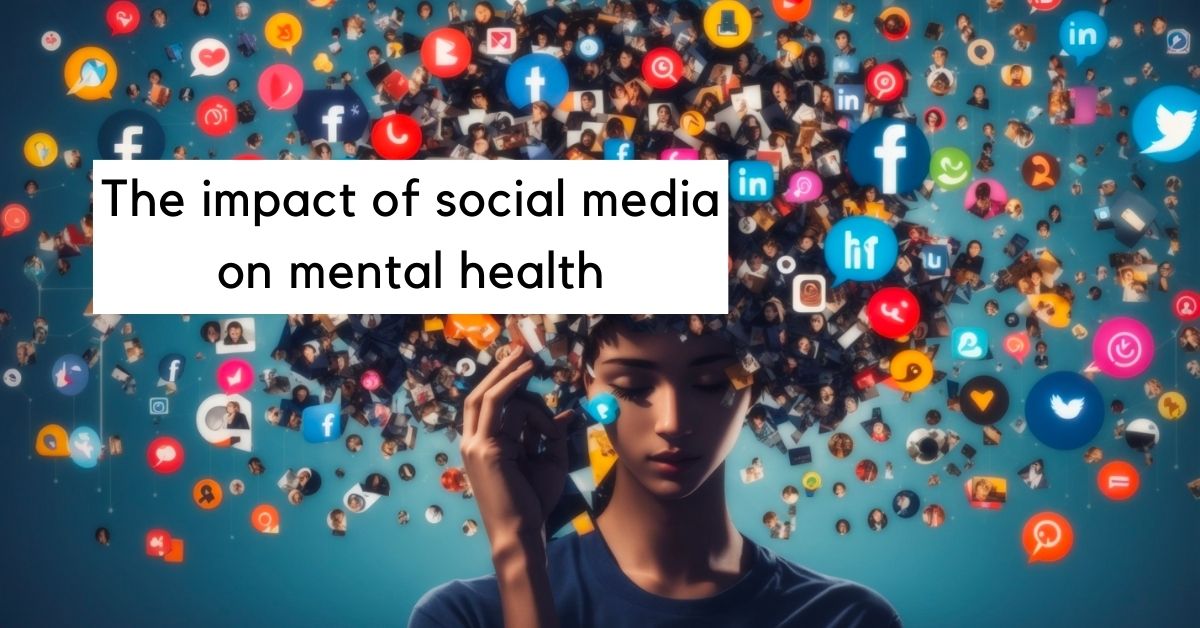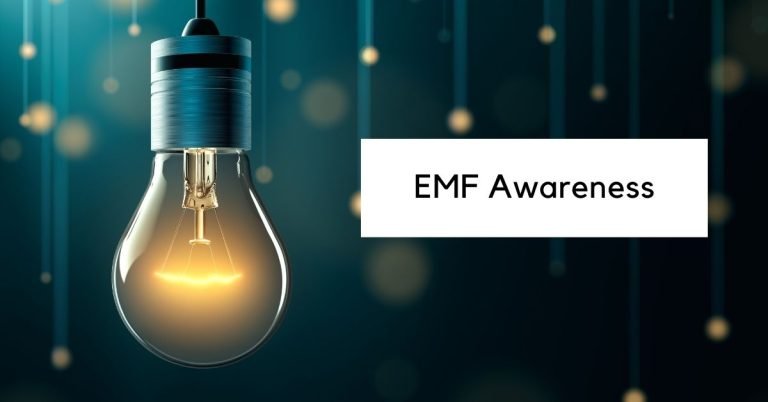The impact of social media on mental health
Social media has become an integral part of our daily lives, whether it’s sharing moments, staying connected with friends and family, or seeking entertainment, social media platforms offer a plethora of opportunities for engagement. However, have you ever wondered why we are so drawn to social media? This article is all about what’s going on in our heads when we use social media. Like, why do we keep scrolling and scrolling? Turns out, it’s because of a bunch of things that mess with our minds, both in good and not-so-good ways.
The psychology of social media engagement
It’s natural to seek social validation and compare yourself to others on social media, but it’s important to remember that what you see online is often a curated version of someone else’s life. While it’s possible to build meaningful connections online, it’s crucial to balance your online interactions with real-life connections to maintain good mental health.
Instant gratification and dopamine release
Feeling that rush of excitement when you get likes and comments on your social media posts? That’s the instant gratification and dopamine release at work, giving you a quick boost of happiness and validation. Dopamine, a neurotransmitter in the brain, plays a crucial role in reward-motivated behavior. When you receive positive feedback on social media, dopamine is released, creating a pleasurable sensation.
However, this instant gratification can have a significant impact on your mental well-being. Constantly seeking validation through social media can lead to a cycle of dependence, with individuals craving more and more likes to feel satisfied. This can contribute to social media addiction and negatively affect mental health.
Social validation and social comparison
When you see others receiving validation on social media, it can be tempting to compare yourself to them. Social validation plays a significant role in shaping our self-worth, and social media platforms often exacerbate this.
Constantly comparing ourselves to others can negatively impact our self-esteem and body image. Seeing influencers with seemingly perfect lives can lead to feelings of inadequacy and dissatisfaction with our own lives.
The culture of seeking validation through likes, comments, and followers can contribute to a never-ending cycle of seeking external validation for our self-worth. This constant need for social validation can also contribute to feelings of loneliness as we may feel disconnected from others or that our own lives are not as exciting or fulfilling.
The positive aspects of social media
Let’s discuss the uplifting dimensions of social media, shedding light on its constructive influences and empowering potential.
1. Connecting with friends and family
With just a few clicks, you can stay connected with loved ones who may be far away, allowing you to maintain a sense of closeness and support. Social media platforms enhance communication by providing various ways to interact, such as messaging, video calls, and sharing updates. These interactions can foster a sense of belonging and promote well-being by providing emotional support, encouragement, and a space to share experiences.

2. Fostering a sense of community and belonging
Online communities offer a space where individuals with similar interests or experiences can come together, share stories, and offer support to one another. This sense of belonging can help alleviate feelings of loneliness and isolation. Online support groups, virtual therapy sessions, and mental health resources are just a few examples of the supportive online communities available to you. Studies have shown that online social support can have a positive impact on mental health, reducing symptoms of depression and anxiety.

3. Fostering expression and creativity
Social media also serves as a hub for artistic inspiration, allowing you to discover new styles, trends, and techniques. Through the process of self-discovery and personal growth, you can explore different forms of artistic expression and develop your skills. The emotional expression that comes with creating and sharing art on social media can be a therapeutic outlet, promoting mental well-being.

4. Access to information and educational resources
Online learning has become increasingly popular, providing accessible resources and educational opportunities for individuals of all backgrounds. Whether it’s through online courses, tutorials, or educational videos, social media platforms offer a wealth of knowledge sharing and information availability. You can now learn about various subjects, expand your skills, and gain valuable insights from experts in the field, all from the comfort of your own home.
The dark side of social media
Are you aware of the dark side of social media? Sure, it’s fun and all to connect with friends, share cool stuff, and see what’s going on in the world. But let’s get real – there’s a whole other side to it that we need to talk about.
1. Social media addiction
Do you find yourself constantly checking your social media feeds, even when you know there’s nothing new to see? Are you spending more time scrolling through posts than engaging in real-life activities? These could be signs of social media addiction, a phenomenon that has become increasingly common in today’s digital age.
Recognizing the signs of social media addiction
Take a moment to reflect on your social media habits and consider whether you may be exhibiting signs of addiction. Do you constantly check your phone for notifications? Do you feel anxious when unable to access social media apps? These are warning signs of social media addiction.
It’s important to recognize these signs and take practical strategies to overcome addiction. By balancing screen time and maintaining a healthy relationship with social media, you can better understand the consequences of excessive use and know when to consider therapy for help.
Escapism and avoidance behavior
Relying on social media as a coping strategy, you may experience emotional detachment from real-life experiences and relationships. You’re using social media as a shield to escape from the challenges and responsibilities of reality. This form of escapism and avoidance behavior can have a profound psychological impact on your mental health.
Online validation addiction
Indulging in the constant pursuit of online validation can leave you craving for more acknowledgment and approval from others. Social media addiction often stems from the need for validation, as people seek reassurance and recognition through likes, comments, and followers.

2. Cyberbullying and online harassment
Experiencing cyberbullying and online harassment can have a devastating impact on your mental health, leaving you feeling isolated and powerless. For example, imagine receiving constant hateful messages and threats on social media, causing you to feel anxious and afraid to even log in to your accounts.

3. Fear of missing out (FOMO)
Constantly seeing others’ highlight reels can create a sense of inadequacy and anxiety as if you’re missing out on something important. It’s crucial to address FOMO and find balance in your social media use. Limiting your time on social platforms and focusing on meaningful offline experiences can help alleviate the pressure to constantly be connected. Don’t let the fear of missing out on exciting events and experiences consume you and prevent you from enjoying the present moment.

4. Comparison and envy
Social media platforms often exacerbate this issue by constantly bombarding you with carefully curated images of others’ seemingly perfect lives. This constant exposure to social comparisons can lead to feelings of envy and dissatisfaction with your own life.
As you constantly compare yourself to others, it’s easy to fall into a cycle of negative thinking and low self-esteem. Moreover, constantly comparing yourself to others can have long-lasting psychological implications, affecting your overall happiness and satisfaction with life.

5. Unrealistic beauty standards and body image issues
Feeling pressured to conform to society’s unrealistic beauty standards and struggling with body image can deeply affect how you perceive yourself and your worth. The media plays a significant role in shaping these standards, bombarding us with images of flawlessly edited models and celebrities.
As a result, many individuals embark on a self-acceptance journey, trying to embrace their bodies and find confidence amidst these unrealistic expectations. The body positivity movement has gained traction, promoting inclusivity and challenging these beauty ideals. However, influencers also bear responsibility for the messages they convey. It’s crucial for them to promote authenticity and diversity, rather than perpetuating harmful standards.

6. Distractedness
Social media has been found to contribute to attention span limitations, making it harder to stay focused for extended periods. Productivity distractions, such as constant notifications and the temptation to check social media, can significantly impact your ability to concentrate on important tasks. Time management challenges are also a common consequence of spending too much time on social media platforms.

7. Disruption of real-life relationships
While social media connects us with others online, it can also disconnect us from those right in front of us. Spending excessive time on social media can make it difficult to be fully present in the moment and can hinder the development of deep and meaningful connections.

8. Information overload
Excessive exposure to the vast amount of information on social media can overwhelm and confuse you, hindering your ability to effectively process and retain important knowledge. This cognitive overload, also known as information overwhelm, occurs when you are bombarded with an excessive amount of information that surpasses your brain’s capacity to handle it.
As a result, it becomes challenging to differentiate between reliable and unreliable information, leading to potential misinformation. To manage information overload, it’s crucial to establish a balance in your digital consumption.

9. Privacy concerns and data exploitation
With the rise of technology, it’s essential to be aware of how your personal information is being used and shared online. Data privacy and online security are major concerns when it comes to using social media platforms. Every time you engage with these platforms, you leave behind digital footprints that can be collected and analyzed by companies for various purposes.
Protecting your personal information is crucial to prevent data breaches and potential misuse. It’s important to understand the privacy settings of the social media platforms you use and adjust them according to your comfort level.

10. Spread of misinformation and false news
To better understand the spread of misinformation and false news, imagine scrolling through your social media feed and coming across a post that claims a popular celebrity has passed away, only to later discover that it was a hoax. This is just one example of how social media can contribute to the dissemination of inaccurate information.
Media literacy and critical thinking are essential in combating this issue. It is crucial to question the credibility of the sources we encounter online and to fact-check information before accepting it as true.

11. Pressure to conform
Social media has created a platform where the expectations of conforming to societal norms are heightened. The constant exposure to carefully curated images and posts can make you feel the need to conform to a certain lifestyle or appearance. Peer influence plays a significant role in this phenomenon, as individuals strive to fit in and be accepted by their online communities.
This pressure to conform can lead to identity conformity, where people may feel compelled to present themselves in a certain way that aligns with the norms of social media.

Managing social media for better mental health
If you want to manage your social media use for better mental health, here are a few key points to keep in mind.
1. Mindful social media use
When it comes to social media and its impact on mental health, practicing mindful social media use can make a significant difference. Mindful scrolling involves being aware of how social media affects your emotions and taking breaks when needed.
2. Recognize emotional triggers
Identifying what triggers your emotions while using social platforms is crucial for maintaining a healthy and positive experience. Mindful engagement means being aware of how certain posts or interactions make you feel. It’s important to establish healthy boundaries and limit exposure to content that negatively affects your emotions. If you find that certain topics or individuals consistently bring up negative feelings, consider unfollowing or muting them.
3. Be aware of information overload
It’s easy to feel overwhelmed by the constant influx of information on social media. One way to do this is by setting limits and boundaries on our social media usage. By taking breaks and stepping away from the digital world, we can give our minds a chance to rest and recharge.
4. Stay grounded in reality
To stay grounded in reality, it’s essential for you to anchor yourself in the present moment and resist the temptation to escape into the virtual world. Social media often blurs the line between fact and fiction, making it crucial to have a reality check. Remember that everyone’s online life is curated, and it’s normal to feel inadequate when comparing yourself to others. Remember that finding a balance between your online and offline connections is important.
5. Setting time limits and boundaries
Take a moment to imagine yourself creating a schedule that carves out specific time slots for social media, allowing you to establish healthy boundaries and limits on your screen time. By implementing effective time management strategies, such as allocating specific periods for social media use, you can prevent excessive screen time and the potential negative effects it may have on your well-being.
6. Recognizing when to take breaks
Knowing when it’s time to step away and disconnect from the digital world is crucial for maintaining a healthy balance in your life. If you find yourself feeling exhausted, irritable, or overwhelmed after spending too much time on social media, it may be a sign that you need a break.
7. Limit notifications
Managing notifications is also crucial in reducing the negative impact on your mental health. Limiting the number of alerts and turning off unnecessary push notifications can help you regain control over your social media usage and prevent feelings of overwhelm and anxiety.
8. Practice self-reflection
Self-reflection involves taking the time to understand your thoughts, feelings, and behaviors in relation to your social media use. It allows you to gain insight into how social media may be impacting your mental health. As I’ve mentioned earlier, one of the negative impacts of social media is the constant comparison to others, which can lead to feelings of inadequacy and low self-esteem. By practicing self-reflection, you can identify these harmful comparisons and develop coping mechanisms to counteract them.
How to create a positive online environment
These are some ways to cultivate a positive online environment for healthier digital interactions and a more constructive online experience.
1. Cultivate positivity in your social media feed
Did you know that the content you scroll through on social media can have a big impact on your mood? By intentionally curating a feed that lifts you and makes you feel good, you can create a positive atmosphere that reflects in your daily life.
- Unfollow negative influences
- Follow inspirational and uplifting accounts
- Engage with content that sparks joy and encouragement

2. Foster supportive communities
Social media can be a great way to connect with others who share your interests and passions. Seek out social media groups and online communities that have a culture of supporting and uplifting their members and also make an effort to provide that same support to others.
- Join online groups that share your interests and passions
- Participate in discussions that promote constructive dialogue

3. Spread kindness and empathy
Social media is a powerful tool for spreading kindness and empathy. By being empathetic and compassionate towards others online, you can create a ripple effect of positivity. Whether it’s through a simple comment or a thoughtful message, you have the power to brighten someone’s day.
- Practice thoughtful communication in online interactions
- Avoid engaging in online arguments or spreading negativity

4. Be mindful of your digital footprint
Your digital footprint is a record of everything you post, like, and comment on, and it can stay out there forever. Pause before sharing heated reactions and venting hurtful comments you may later regret. By being mindful of what you share, you can protect your privacy and maintain a positive online presence.
- Think before you share or comment on posts
- Ensure your online presence reflects your values and integrity

5. Limit exposure to harmful content
Be aware of how certain social media accounts or communities can negatively impact your mental health. Remember that you don’t need to know every negative thing that is happening in the world. Limit your exposure to graphic, traumatic, or upsetting content that does not serve your well-being. Utilize content filters and settings to control your online experience.
- Recognize triggers and avoid content that negatively affects your mental well-being
- Utilize content filters and settings to control your online experience

“Almost everything will work again if you unplug it for a few minutes, including you.”
– Anne Lamott
Final thoughts
While social media undeniably enhances our connectivity and provides a platform for self-expression, its impact on mental health cannot be overlooked. The allure of endless scrolling, the pursuit of validation through likes and comments, and the constant exposure to curated lifestyles can take a toll on our psychological well-being.
The carefully curated highlight reels of others’ lives can leave us feeling inadequate and trigger feelings of anxiety or depression. Not to mention, constant exposure to social media can disrupt our sleep patterns and contribute to poor physical health.
It’s important to remember that social media is a tool, and it’s up to you to use it mindfully and in moderation. As individuals, it’s up to us to navigate this terrain with awareness, ensuring that our online interactions contribute positively to our lives without compromising our mental and emotional health.






